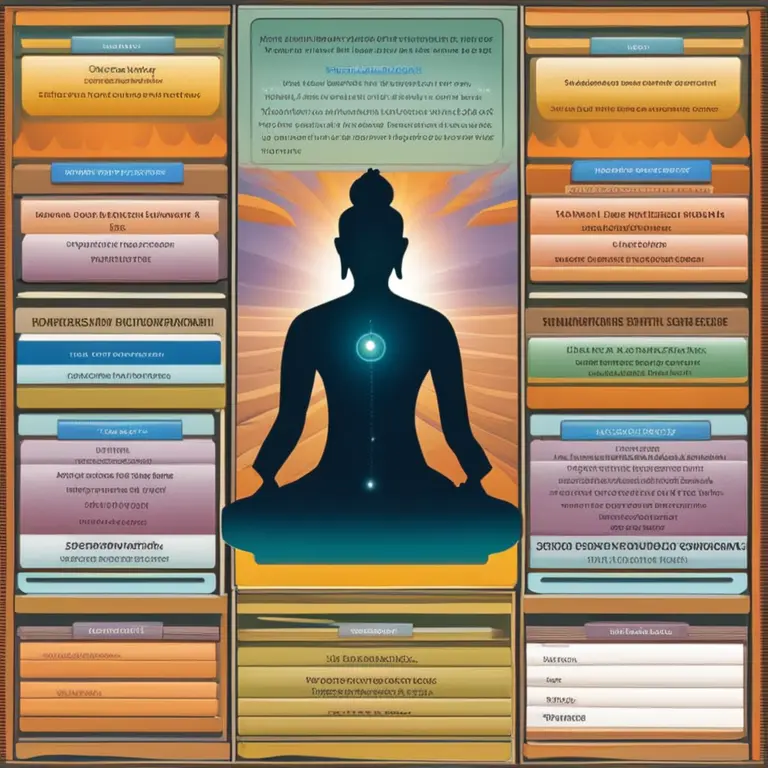
Can Meditation Enhance Your Focus?
Discover how meditation can boost concentration and the science behind its cognitive benefits in this insightful article.
article by Hina Kurosawa
The Science of Meditation and Focus
Meditation has long been associated with spiritual and emotional well-being, but its benefits on cognitive functions, particularly focus and concentration, are gaining scientific traction. Studies as recent as 2024 have shown that consistent meditation practice leads to changes in brain regions involved in attention, task switching, and self-regulation. This neurological evolution directly affects the practitioner's ability to concentrate, making meditation not just a spiritual exercise, but also a brain-enhancing activity.

Types of Meditation for Better Concentration
While there are various forms of meditation, certain types specifically target concentration improvement. Mindfulness meditation, for instance, encourages an increased awareness of the present moment, honing the mind's ability to maintain attention. Focused-attention meditation, like Vipassana, involves concentrating on a single point, object, or thought, which trains the brain to filter out distractions and improve overall focus.

Meditation: A Regular Practice Matters
To reap the concentration-enhancing benefits of meditation, regular practice is crucial. Just as physical exercise requires consistency to yield results, the same holds true for mental exercise. By meditating daily, even for short periods, individuals can gradually enhance their ability to concentrate, making this a beneficial habit for both long-term cognitive health and immediate mental performance.

Case Studies and Testimonials
Recent case studies highlight the impact of meditation on focus. In a controlled trial conducted in 2024, office workers who meditated over a three-month period reported a significant increase in concentration and productivity. Personal testimonials also back these findings, with many individuals sharing that their meditation practice has led to more focused work hours and reduced feelings of being overwhelmed.

Integrating Meditation in Daily Life
Incorporating meditation into daily routines can be straightforward. Starting with just five minutes a day and progressing as comfort increases makes it manageable. Vocal advocates for meditation in modern lifestyles, such as high-profile CEOs and athletes, have highlighted its practicality in even the busiest schedules, demonstrating that improved concentration through meditation is achievable for everyone.
Challenges and Overcoming Them
Beginning meditators may face challenges such as restlessness and lingering distractions. However, these hurdles are part of the brain-training process. With time and patience, the mind grows accustomed to the state of deep focus that meditation requires. Guided meditation apps and programs, increasingly popular and accessible in 2024, offer structured pathways for individuals battling such challenges.
Conclusion
In conclusion, meditation is a potent tool to enhance concentration. While the path to increased focus through meditation is not instantaneous and requires commitment and patience, the cognitive and emotional benefits that ensue are considerable. As research continues to unfold, the relationship between meditation and improved focus becomes more apparent, encouraging a mindful approach to mental training.
Published: 1/15/2024
Modified: 1/15/2024
More predictions
Come back here soon to learn more about yourself and your future


Healing Through Mindfulness: Meditation & Trauma Recovery
Mindfulness meditation offers a powerful tool for individuals seeking solace and healing from traumatic experiences. Discover how this practice can aid in the journey towards inner peace.


Mindfulness Meditation: A Handbook for High Schoolers
Discover how mindfulness meditation can benefit high school students, enhancing focus, reducing stress, and promoting overall well-being.


Harmonizing Life with Meditation Mantras
Delve into the transformative power of meditation mantras to align mind, body, and spirit for a harmonious existence.